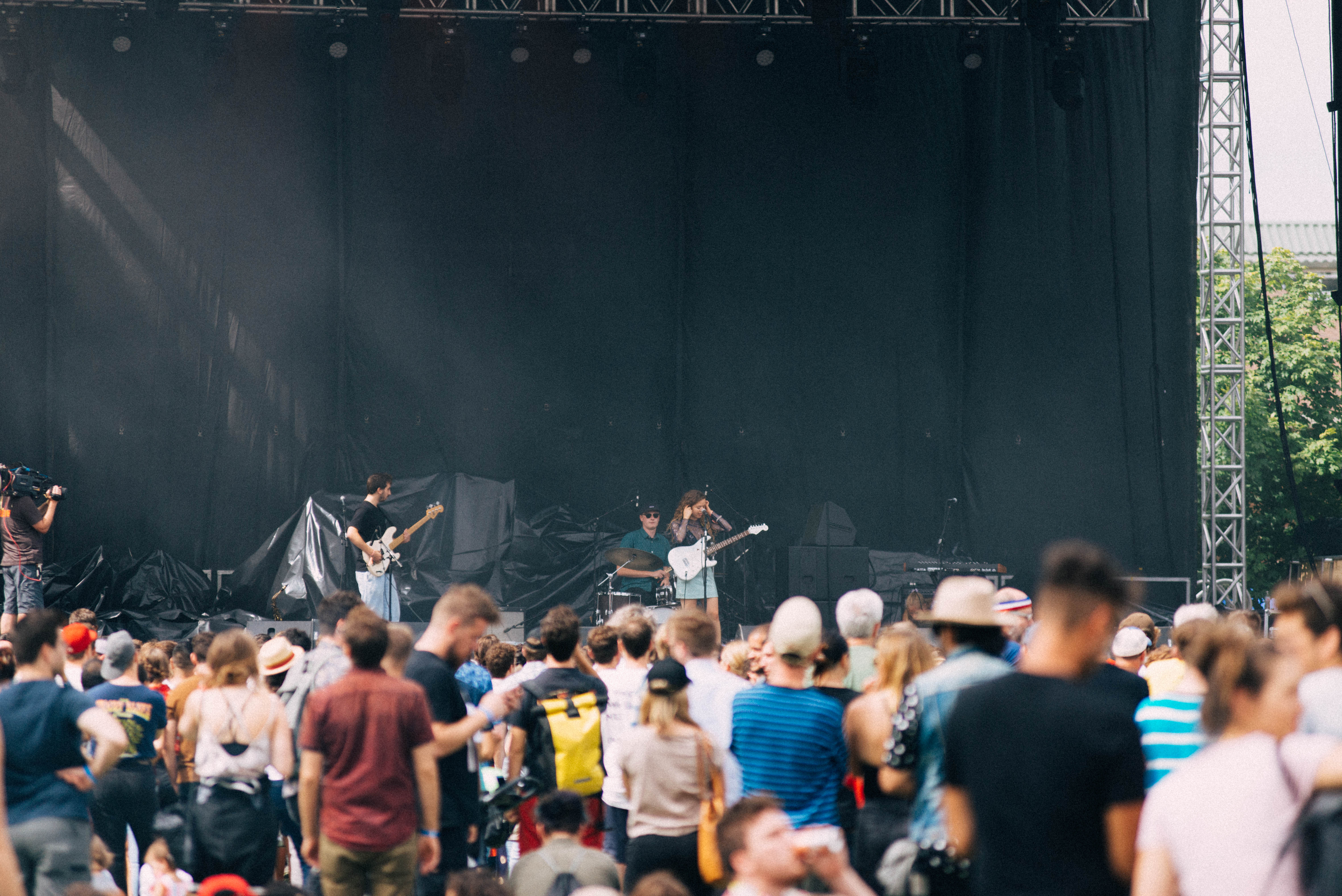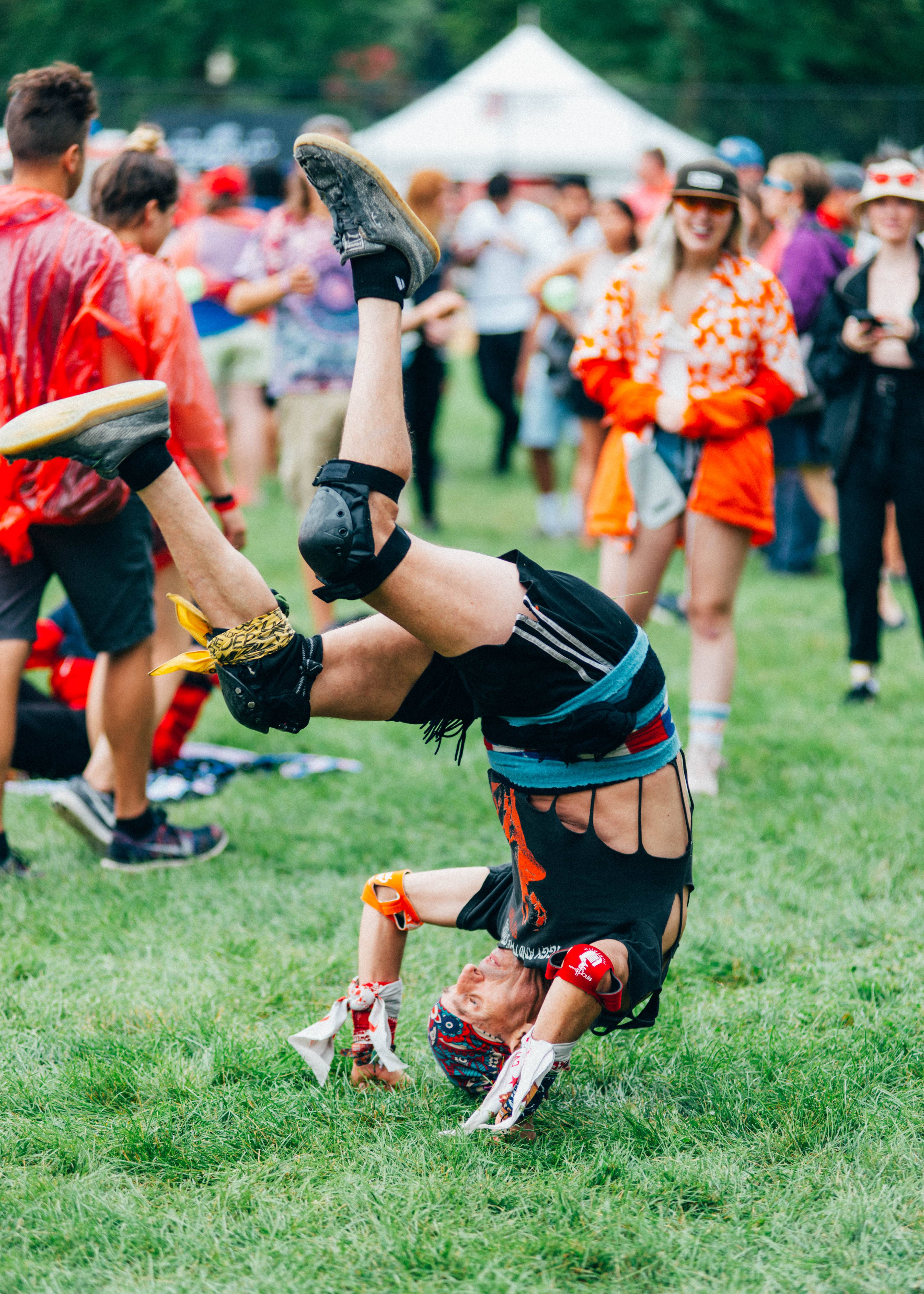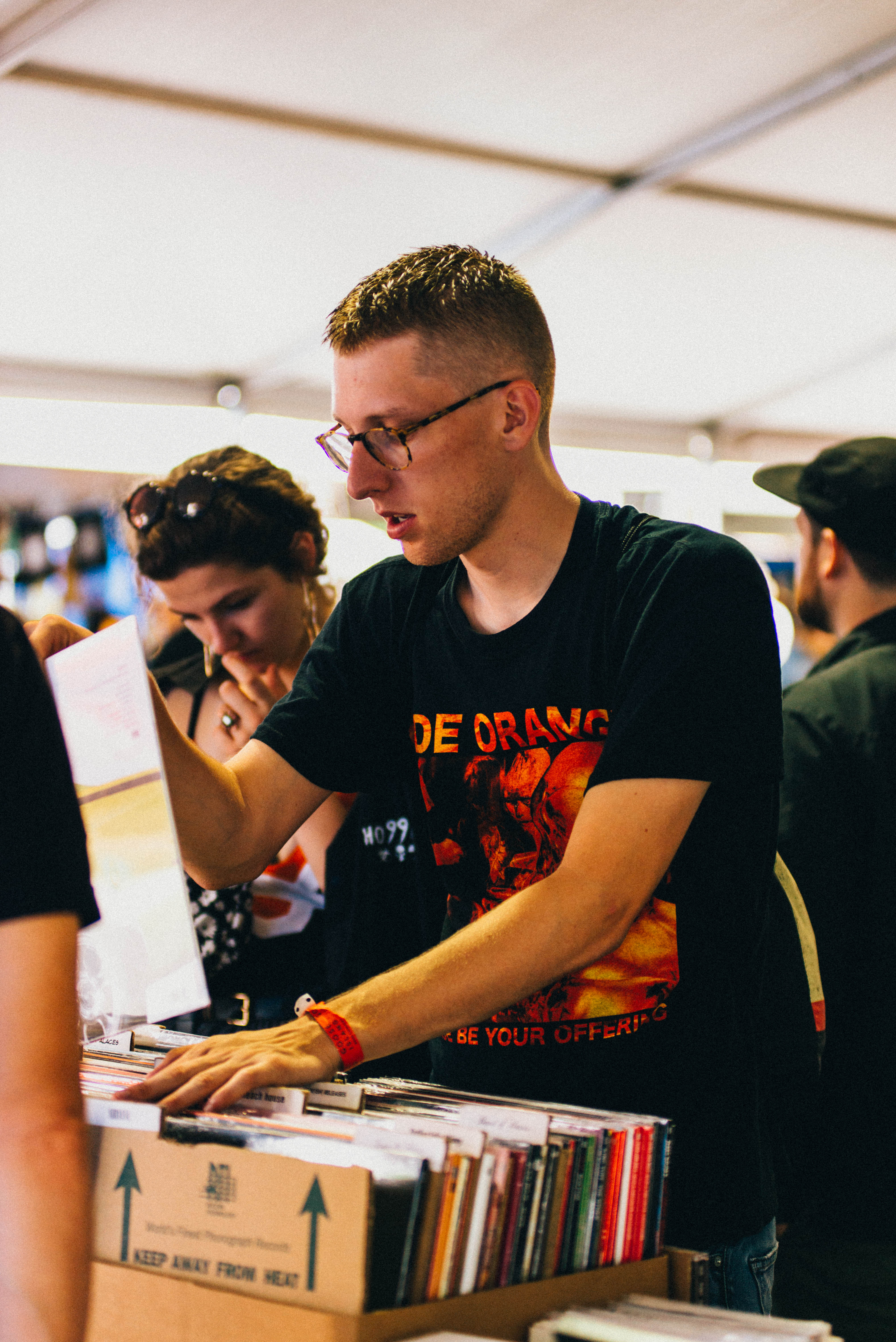WRBB at Pitchfork 2018: Post4k Coverage

Pitchfork cemented its place as a unique experience in today’s commercialized festival circuit.
As a music publication, Pitchfork has been extremely critical of the current state of the music industry and the growing music festival bubble. When the publication who calls out every other festival’s problems continues to put on its own, there is a heightened expectation for them to create a truly unique and unproblematic experience.
Most festivals in today’s circuit are owned by the same companies and offer the same acts and experiences in slightly different locations. My expectations were high for this festival to change my mind on what a music festival really is in 2018.
Thanks to great planning and creativity, Pitchfork Music Festival 2018 left a positive impression on me. Along with the fact that I’m now itching to go back to Chicago ASAP, I left with three major takeaways from the fest.
Music is for everyone.

A man in the crowd playing hacky sack.
As ticket prices skyrocket and the festival scene gets oversaturated with the same industry giants pulling in as much cash as possible, Pitchfork made a point to remind everyone that festivals should be accessible to all music lovers.
The festival promotes its commitment to keeping ticket prices low. There is no way to put on a festival that large without a bit of money, but the choice to use the money for the music and art instead of a giant Ferris wheel or Instagram playgrounds made a world of a difference. More affordable tickets made it possible for fans from all over of all ages to come see their favorite artists and discover new ones. And for those that still couldn’t afford to go, Pitchfork live-streamed many of its sets.
A lineup as eclectic but harmonious as this year’s festival is a hard feat to achieve, but they succeeded in blowing away expectations. A combination of hip hop, R&B, alternative rock, folk, funk, electronic, and more pulled in a diverse crowd. There’s value in having a diverse crowd instead of one of all people from the same social class and city. It created a sense of comfort and acceptance instead of one of judgement against those who are slightly different.
Quite possibly my favorite thing Pitchfork did this year was its promotion of creating safe spaces for fans. It teamed up with RAINN, the largest anti-sexual violence organization in the US, to support the fight against sexual violence. There was also an on-site resource and response center with trained counselors and security for those who experienced or witnessed harassment over the weekend. The strictly anti-harassment code of conduct felt extremely necessary and comforting in an environment that can easily spark fear among victims.
Uniquely Chicago.

A fan flipping through records at the CHIRP Record Fair.
The festival’s location is central to its ethos. The Chicago-based publication uses its clout to promote the city’s local art and music scene and does a great job of making locals and visitors alike feel at home.
The parts of Union Park that weren’t stages were transformed into a playground for independent artists and authors. The record fair (sponsored by Chicago radio station CHIRP) brought together independent labels and record stores from all other the nation. The vendors appeared just as excited to be there as the attendees. Their enthusiasm was made clear with customer interactions that went far beyond just transactions. While perusing through the fair, I had a lengthy conversation with the owner of a local record shop and walked away with a first pressing of one of my favorite albums and a sizable list of new artists to check out. I wasn’t the only one — every vendor seemed to create relationships with festival attendees as they bonded over a mutual love for music and art.
Chicago’s music scene dominated the festival . Artists like Saba, Open Mike Eagle, Noname, and Nnamdi Ogbonnaya spoke about their upbringing and praising the Chicago hip hop scene during their sets. Evanston-based Kweku Collins even saw some people he went to high school with in the crowd, reminding us all how big of a moment it is for him to be playing in his hometown. They all had a sense of comfort being on their home turf that translated well to the crowd.
Add this to the fact that the festival was within the city instead of on the outskirts or in the middle of the desert, and it really felt like a great snapshot of what Chicago is.
No one’s ever perfect, but that’s okay.
Twelve years into running a festival, you’d think that Pitchfork would run like a well-oiled machine. But a live event that’s been years in the works is still a live event, so anything can go wrong.
Noname’s voice disappeared in a bad sound mix on the red stage, prompting an unrequited chant of “turn up the mic!” from the crowd. Julien Baker’s bare bones set was also unfortunately overshadowed by Saba’s explosion of sound.
Sound engineers can work around technical difficulties like Noname’s, but at a point I wondered if the scheduling created a whole new issue. It makes sense to pit high energy artists against more low-key ones to give attendees the choice between a set that leaves their ears ringing and one that lets them relax. On the other hand, it can lead to the quiet set getting drowned out by its louder counterpart in a park as small as Union Park. The minor flaws hardly took away from the experience. I’d rather experience a few technical issues in a unique festival than see a technically flawless one without an ounce of genuinity.
My biggest qualm with the festival ended up being a uniquely out-of-towner one. With so many talented poster artists and limited space in my duffel bag, I had to pass on far too many beautiful prints from the poster fair. I’m forever indebted to Reverb for offering a free record shipping service, though. Maybe next year someone will start a poster shipping service? A girl can dream.
Despite the very minor issues, when they got things right, they got things right. The soundscapes artists like Moses Sumney, Tame Impala, and Ms. Lauryn Hill were able to create were nothing short of other-worldly.
In summary: the lineup was the die for, the environment was comfortable and welcoming, the experience felt like a true celebration of Chicago art, and WRBB can’t wait to see what Pitchfork 2019 has in store.